It’s an awesome annual tradition. At the end of each year, the editorial team at Xtra gathers together in our finery and funny hats, fuzzy pets at the ready, as we sip hot chocolate, shoot spitballs and argue. It’s no mean feat to distil hundreds of news stories—the good, bad and indifferent—into a series of manageable bite-size chunks that reflect the best and the worst of LGBTQ2S+ existence over the past year.
In 2022, We’re Here drag performers and Cherelle T. Griner, reluctant spokesperson for her imprisoned wife Brittney Griner, topped our Righteous Queens list while Florida governor Ron DeSantis and billionaire Elon Musk were the shadiest of the shady. Who made our naughty and nice list this year? And who did we miss? Let us know on our social media channels like X, Reddit, Instagram or TikTok.
Righteous Queens
Queers in Palestine on Instagram
When people outside of Palestine talk about queer and trans Palestinians, they tend to speak for them. We rarely hear from LGBTQ+ people on the ground themselves. The reasons for that are nuanced and many: persistent homophobia keeps some in the closet, fear of being blackmailed by the Israeli military keeps some quiet and, as the relentless bombardment on Gaza continues, many Palestinians are simply focused on trying to stay alive.
Enter the Queers in Palestine Instagram account. Launched in November, the anonymous page describes itself as a “liberatory demand from queers in Palestine.” It uses the platform to share information, translated into several languages, about the queer liberation movement in Palestine, how to counter pinkwashing and how to participate in peaceful forms of protests like boycotts. It also boosts LGBTQ+-specific solidarity actions in different cities across the globe.
The account offers crucial access to queer Palestinian voices—and shows how global solidarity among queer and trans people committed to anti-racist and anti-colonial organizing can grow.
—Ziya Jones, senior editor, health
Sports legend Megan Rapinoe

Megan Rapinoe. Credit: CC: Lorie Shaull
As a longtime Canadian soccer fan, I’ll admit I’ve nurtured a friendly sports grudge toward Megan Rapinoe on the pitch (I and many others won’t soon forget her two goals versus Canada in the 2012 Olympic semifinals). But her impact off the field is undeniable. As trail-blazer and activist for inclusion in sports and elsewhere, Rapinoe retires having changed sports for the better.
She came out as gay publicly in 2012, and since then has fought hard for the rights of LGBTQ2S+ people, women and people of colour on and off the playing field. She joined Colin Kaepernick in kneeling when no one else would back in 2016, and was a leader in filing a lawsuit against the United States Soccer Federation accusing it of gender discrimination and fighting for equal pay for women’s players. Oh, and along the way she and fiancée Sue Bird have become lesbian style icons too.
But Rapinoe also made a lot of enemies. During her final World Cup appearance this summer, Rapinoe’s final touch of her distinguished career was a penalty shot that sailed over the crossbar. That quickly became a point of mockery for the right, and Rapinoe was subjected to a barrage of hate and abuse from right-wing media and trolls (including former U.S. president Donald Trump). Though America’s flop at the World Cup wasn’t solely her fault, she bore the brunt of the criticism for weeks following what was supposed to be her final glory moment.
But, in true Rapinoe fashion, she soldiered on. On the pitch in that moment, she laughed at the pure dark comedy of missing her final shot in such dramatic fashion. And now as she turns her eye to post-retirement life, there’s an entire generation of players, particularly queer ones, who’ve been inspired by her fierce fight on the pitch and her fierce fight for what’s right off it.
Something tells me that even though she’s not kicking around a ball anymore, we’ll still hear plenty from her in the years to come.
—Mel Woods, senior editor, audience engagement
Bilal Baig
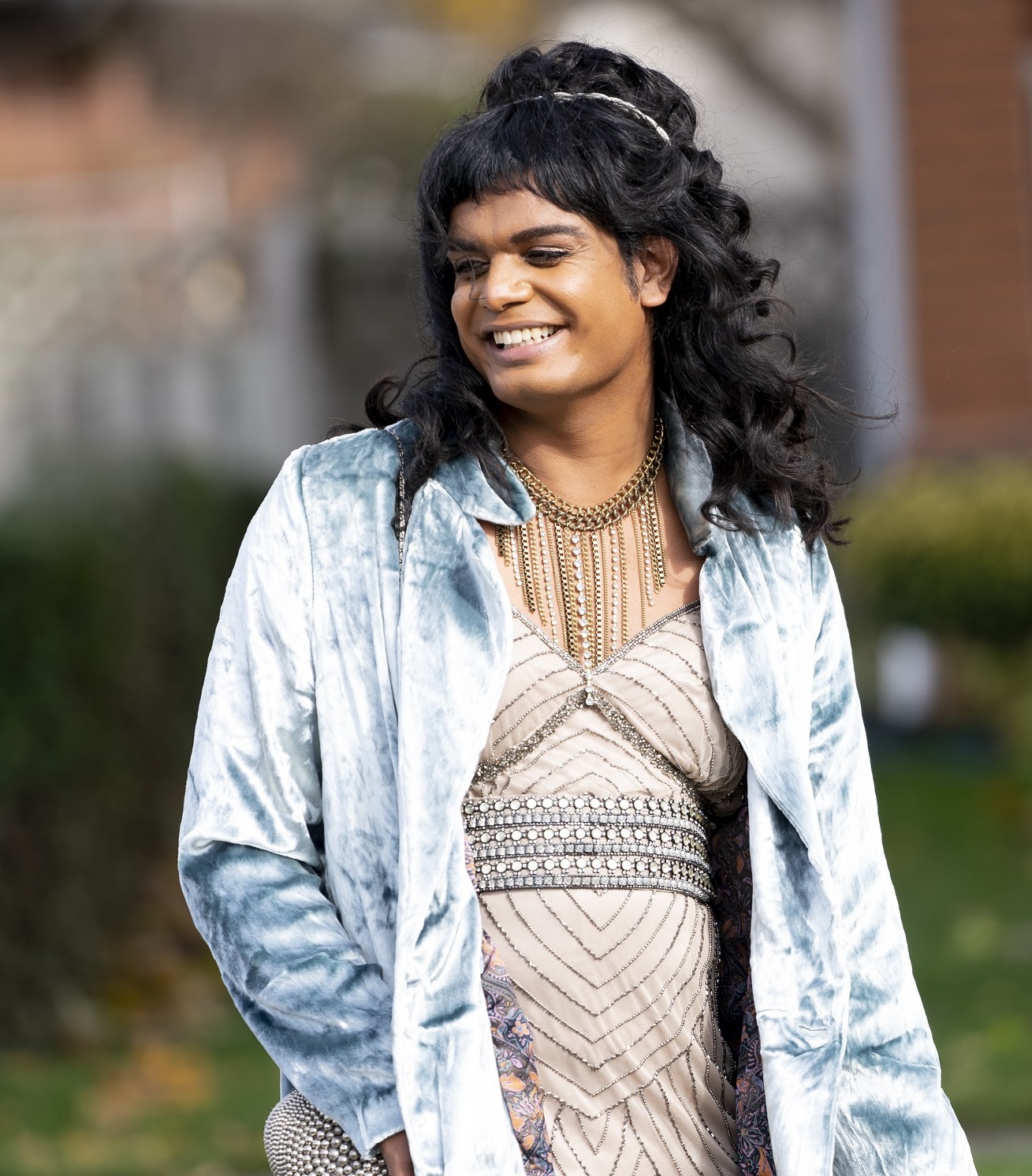
“Sort Of” co-creator Bilal Baig as Sabi. Credit: Keri Anderson
When Sort Of premiered on CBC in 2021, non-binary representation on screen was hard to find. Shows that featured the work of multiple trans and non-binary writers, actors and creators were almost non-existent. The show, which was created by Bilal Baig and Fab Filippo—and which followed non-binary protagonist Sabi (played by Baig) as they stumbled through life, love and familial strife—sought to change that.
The show immediately found its audience: over the course of three seasons, Sort Of captured the hearts of viewers and critics alike, landing coverage in publications that rarely highlight CBC fare—from the L.A. Times, to Rolling Stone to Variety. Nonetheless, Baig and Filippo announced this fall that the most recent season, which wrapped up this month, would be the show’s last.
While networks have a tendency to cancel shows with queer characters far before their time, Baig and Filippo made the call to wrap up Sort Of themselves. It was time, they said. Plus, Baig wanted more time to prioritize rest, they said in interviews, and to return to their theatre acting roots.
Sort Of’s three-season run may have been relatively short, but through the show Baig succeeded in highlighting the voices and the work of tons of trans creatives, both in front of and behind the camera.
“Our stories need to be informed by our experience,” Baig told Xtra earlier this year. “I’m hopeful. I do recognize that there’s so much not-great stuff going on in the world, and even in our industry in terms of queer and trans shows getting cancelled, but I think that there’s enough proof now that when we are a real big part of the creative decisions behind the show, it makes a difference for the product.”
—Ziya Jones, senior editor, health
Queer supergroup boygenius
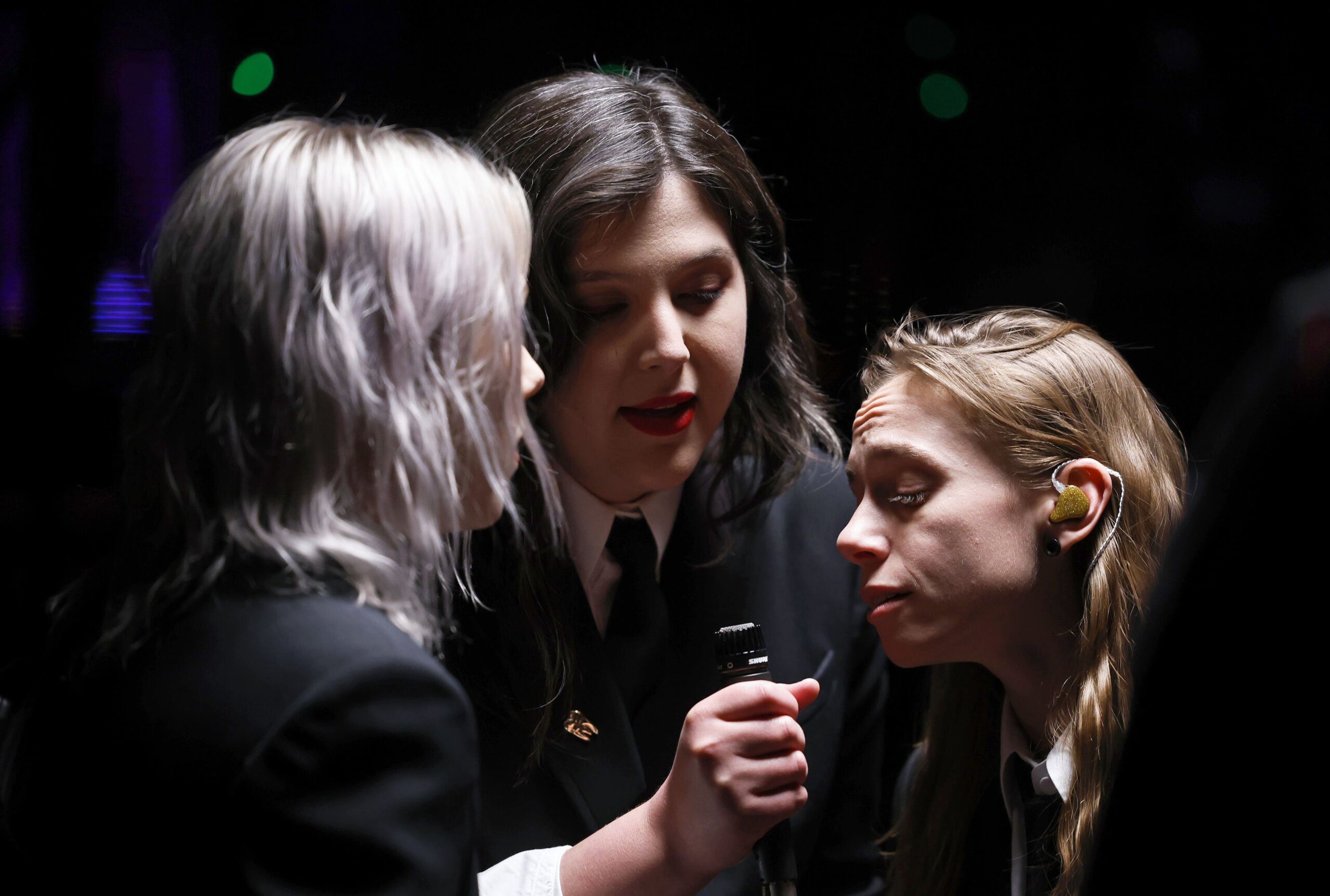
(L-R) Phoebe Bridgers, Lucy Dacus and Julien Baker of boygenius perform during the 2023 Coachella Valley Music and Arts Festival in 2023. Credit: Frazer Harrison/Getty Images
Back in 2018, boygenius’s six-song EP felt like a dream come true for the then small-pond fan bases of Lucy Dacus, Julien Baker and Phoebe Bridgers—a trio of queer powerhouse indie singer-songwriters coming together to form a supergroup. Years later, we can confidently say that 2023 was the year of boygenius. From releasing their debut album the record in March and their EP the rest in October, touring across the U.S. and Canada and being nominated for six Grammy Awards, including Album of the Year, the boys have had a busy year. The band has spotlighted queer and trans issues at many of their shows, including dressing in drag at their Nashville concert to protest Tennessee’s anti-drag legislation and showing their support for trans and abortion rights with a loud “fuck Ron DeSantis” at their Coachella performance.
Of course, boygenius is not the first queer band to centre queer joy, friendship and advocacy in their music and image, and they surely won’t be the last. But the sheer scale at which Dacus, Baker and Bridgers have reached queer fans across the world feels like something worth celebrating.
—Jordan Currie, associate editor, audience engagement
Sportsman Dwyane Wade and other famous parents supporting their trans children
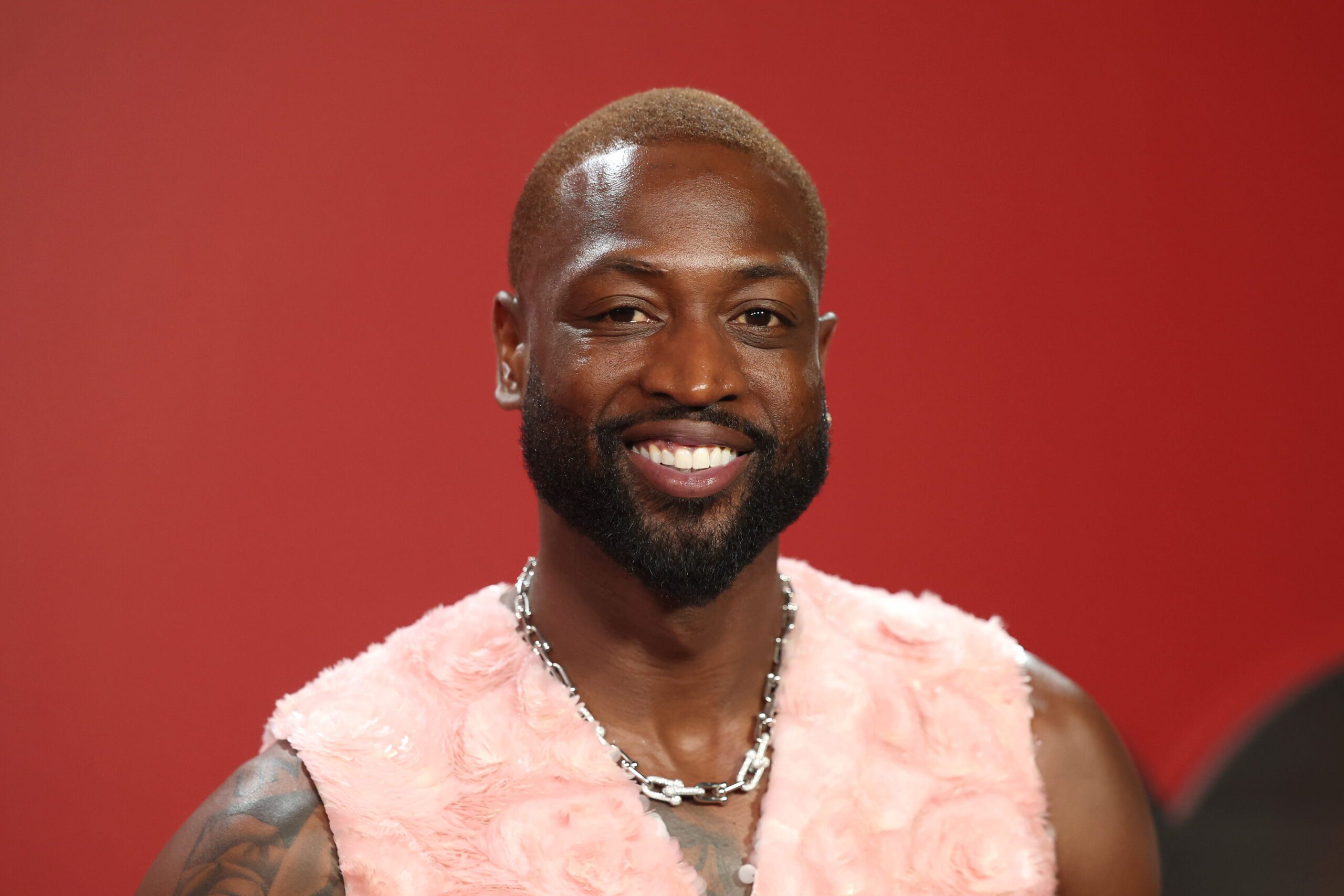
Dwyane Wade. Credit: Photo by Phillip Faraone/Getty Images for GQ
We hear a lot about who’s not doing right by trans kids, but let’s take a moment for those who are. Former pro basketball player Dwyane Wade and his wife, actor Gabrielle Union-Wade, have been vocal supporters of their trans daughter, Zaya, since she came out in 2020. In February they dedicated their NAACP Image Award to Zaya. “As your father, all I’ve wanted to do was get it right,” Wade said in a speech. Also this year, Wade was an executive producer on the short documentary The Dads, which focuses on five fathers of trans children.
Wade and Union-Wade are, of course, not the only celebrities to publicly support their trans kids. Others include actors Jamie Lee Curtis and Annette Bening and, as of last month, actor and comedian Marlon Wayans. We applaud them all for using their public platforms to promote the acceptance of trans kids.
—Tara-Michelle Ziniuk, senior editor, politics
Trans activist Fae Johnstone
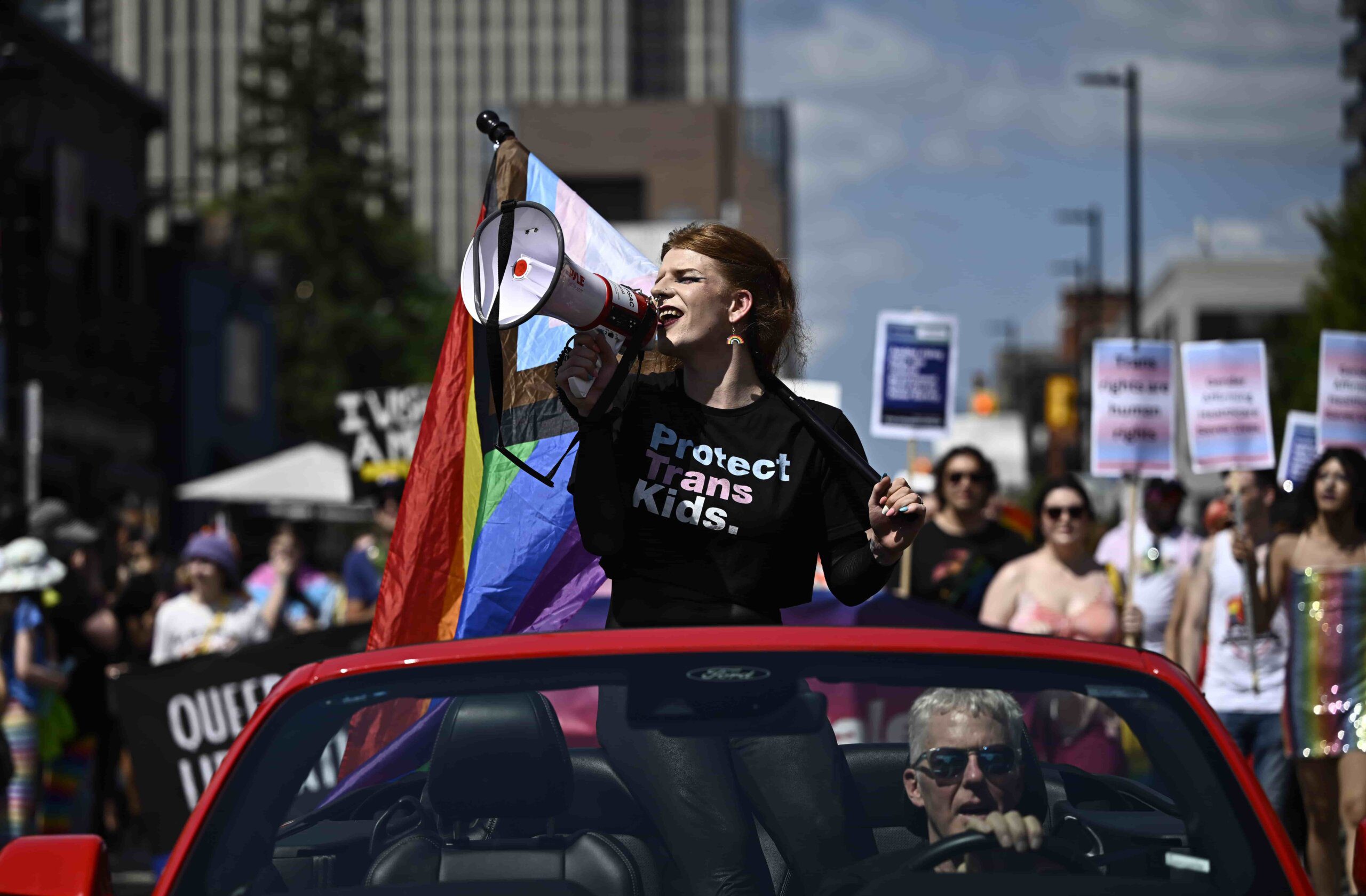
Fae Johnstone, leading the Ottawa Pride Parade as Grand Marshall in 2023. Credit: Justin Tang; The Canadian Press
Activist. Executive director. President. Social worker. These are just some of the titles Fae Johnstone holds.
In addition to running the LGBTQ2S+ consulting firm Wisdom2Action, this year Johnstone launched the non-profit Momentum, which works to advance the rights of and fight hate against queer and trans people in Canada. Many within Canada will be familiar with Johnstone as a public speaker, advocate, educator—and frequent source in Xtra.
But her visibility took a dark turn this year. In March, Johnstone was at the centre of a social media storm when Hershey Canada featured her image (one of five feminists selected) on a limited-edition chocolate bar as part of their International Women’s Day campaign. Johnstone was clear that she would not back down, even in light of being targeted by a right-wing hate campaign—including relentless anti-trans coverage from Tucker Carlson and Fox News—that also called for a boycott of Hershey’s. “They’re not going to shut me up because this work is so important,” she told CBC News.
As a result of the Hersey’s backlash, she’s become one of the most visible trans people in Canada, in a current moment where that is far from an enviable position to be in. And yet Johnstone has mobilized her visibility to make change, whether that’s clapping back at right-wing trolls online (her gleeful dig at Carlson after Fox News sacked him was iconic), or platforming petitions and motions in Parliament that aim to change tangible policy.
To be blunt, Canada needs more Fae Johnstones, and we’re lucky that the one we have is putting in the work she is.
—Tara-Michelle Ziniuk, senior editor, politics
Shady Bitches
Ugandan president Yoweri Museveni

Ugandan president Yoweri Museveni. Credit: CC: Russell Watkins/Department for International Development
Ugandan president Yoweri Museveni signed one of the harshest anti-LGBTQ+ laws in the world in May of this year. The new law increased prison terms for gay sex, which was already illegal in Uganda, while creating a new category of offence—punishable by death—in cases of so-called “aggravated homosexuality,” in part defined as gay sex with anyone under 18, anyone over 75, or a person with disabilities; it also includes gay sex while HIV-positive and repeat offenders. In addition, the act makes it a crime not to report such cases and criminalizes the vaguely worded “promotion of homosexuality” which now carries a 20-year sentence, basically silencing LGBTQ+ advocates. Civil rights leaders warn of increased police harassment, vigilantism and extortion.
Activist Henry Mukiibi told CNN, “I think this is so horrible […]. We are going to be tortured. I am just scared now about what is next. People have been waiting for the bill to be signed and then they will work on us. We are going to die.”
The new act in Uganda is just the worst of a slew of anti-queer and trans legislation that blighted 2023 including Russia’s recent ban on LGBTQ+ activism, what the Supreme Court called “the international LGBT public movement” and the ongoing rollback of queer and trans rights in the U.S., U.K. and Canada.
—Gordon Bowness, executive editor
Speaker Mike Johnson and house congressional wingnuts

U.S. House speaker Mike Johnson. Credit: United States Congress
As we know well, the U.S. Capitol is chock full of shady bitches (who could forget the diva of the year?), but this year, some new contenders for top shady bitch in Washington emerged from unexpected places. Perhaps the most notable was a guy most of us hadn’t really been paying attention to (or even heard of, frankly) until he somehow managed to secure the seat of Speaker following the chaos of former speaker Kevin McCarthy’s ouster. Rep. Mike Johnson’s success came as a surprise to many—but he’s long been bad news for LGBTQ2S+ Americans.
Prior to entering public office, Johnson worked as an attorney with the Alliance Defending Freedom (ADF)—which you may know as the organization behind a significant amount of the anti-LGBTQ2S+ and anti-abortion legislation advanced across North America over the past several years. (Oh, and did we mention that the ADF is also a Southern Poverty Law Center-designated hate group?) Johnson continued this trend as he made his foray into public office. During his tenure in the Louisiana state legislature, he proposed legislation that would have permitted discrimination against LGBTQ2S+ people and advocated for “covenant marriage,” a type of marriage supported by conservative Christians that make divorces difficult to attain. And in his capacity as a U.S. Representative, he’s contributed to efforts such as introducing a national “Don’t Say Gay” bill, co-sponsored Marjorie Taylor Greene’s bill attempting to ban gender-affirming care for trans youth, and attempted to overturn the results of the 2020 elections. If that’s not shady bitch behaviour, I don’t know what is.
Most recently, Johnson received an award at a gala hosted by the National Association of Christian Lawmakers—a group hell-bent on enacting a “biblical worldview” that includes blocking “radical LGBTQ+ indoctrination in our public schools” and “radical transgender ideology and irreversible genital mutilation of minor children.” At the gala, Johnson compared himself to Moses, saying that he received a message from God telling him to step forward into the role of Speaker. Everyone has their calling—but Mike, this one might not be yours.
—Oliver Haug, contributing editor
British prime minister Rishi Sunak
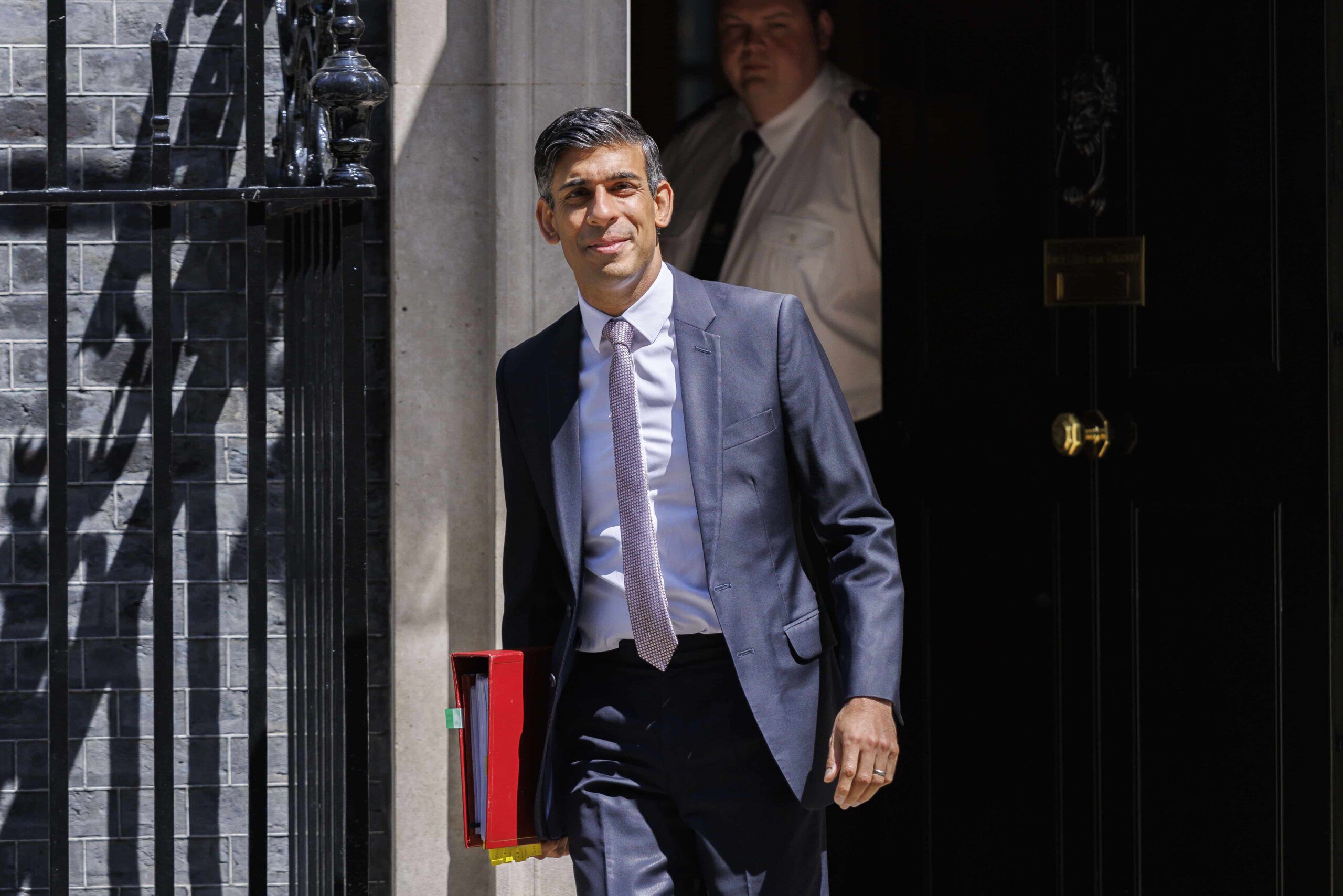
British prime minister Rishi Sunak leaves Downing Street. Credit: Belinda Jiao/Getty Images
The United Kingdom has a transphobia problem. This isn’t necessarily new—among my British friends it’s earned the less-than-flattering nickname of “TERF island” for its penchant for encouraging the worst forms of vile anti-trans hate (and, of course, J.K. Rowling, the queen anti-trans so-called radical “feminist” herself, calls the British isles home).
But in 2023 the transphobia kept ramping up. We only have to look at the horrific murder of trans teen Brianna Ghey, and the related trial currently going on, as an example of how bad it is.
And where is the U.K.’s leadership in this moment? Standing up for trans kids? Calling out the hate? Condemning murders like Brianna’s?
Nope. Prime Minister Rishi Sunak and his government have opted to do the exact opposite and fan the flames of anti-trans hate. At the Conservative Party conference this fall, Sunak went so far as to turn his speech into a treatise against “woke” gender ideology with slogans like “a man is a man and a woman is a woman.” And of course his party backed up that talk by passing policies like banning trans women from women’s hospital wards.
Words and policies like Sunak’s have consequences—and those consequences are the lives of trans people.
—Mel Woods, senior editor, audience engagement
Saskatchewan’s Scott Moe and other Conservative premiers

Saskatchewan premier Scott Moe. Credit: Heywood Yu/The Canadian Press
Conservative premiers across Canada increasingly pandered to fringe right-wing activists in 2023, climbing on the so-called “parental rights” bandwagon and forcing through anti-trans and anti-queer education policies. Saskatchewan premier Scott Moe stands atop this rogues’ gallery by undermining the basic human rights of all Saskatchewan residents when his government invoked the notwithstanding clause to push through unconstitutional legislation that requires students under the age of 16 to receive parental consent before changing their name or pronouns at school, bans all sex education from outside third parties and bolsters opt-out provisions for sex-ed—all of which negatively impact queer and trans students.
Moe admitted that not a single local parent had expressed concern to him over the province’s previous pronoun policy at use in schools, while fringe right-wing group Action4Canada claimed that it was responsible for the policy change after orchestrating thousands of complaints to be sent to the premier. (The actual number of letters sent to the government turned out be only 18, according to the CBC.) A similar dynamic played out in New Brunswick with Premier Blaine Higgs, while other provincial leaders like Danielle Smith and Doug Ford seem eager to pick up the parental rights cudgel. Federal opposition leader Pierre Poilievere will undoubtedly make this list next year as he prepares to campaign on the issue during the next federal election.
—Gordon Bowness, executive editor
Moms for Liberty
Over the years Moms for Liberty (M4L) has been involved in all sorts of unsavoury stuff: compelling schools to lift their mask mandates; campaigning against racial history, sexual orientation and gender being discussed in schools; harassing educators, trying to get LGBTQ2S+ books banned, informing anit-queer and anti-trans policies—the list goes on and on. And as a 501(c)(4) organization, they’re doing it all on a tax-exempt basis!
The Southern Poverty Law Center has labelled M4L a far-right extremist organization, but that hasn’t stopped them from becoming influential, allegedly building up more than 300 chapters across the U.S. (although some are questioning how active those chapters really are) and garnering praise from several Republican politicians including former Xtra shady bitches Ron DeSantis and Donald Trump.
In recent months, though, the group has started to implode. Not only did 70 percent of its endorsed candidates lose in school board elections this year, but several members have faced scandals. Some members have been exposed as sex offenders, while others have been shown getting a bit too cozy with members of the fascist organization the Proud Boys. Most recently, one of the group’s co-founders, Bridget Ziegler, has been facing pressure to step down after she revealed in a police interview that she was at one point in a relationship with her husband, Florida GOP chair Christian Ziegler, as well as another woman. The interview took place after that woman accused Ziegler of raping her (he has denied the allegations).
Almost every piece of news that comes out about this group is just unfathomably terrible. But as the scandals pile up, there’s hope that they’ll eventually spell the group’s downfall.
—Ziya Jones, senior editor, health
The National Hockey League
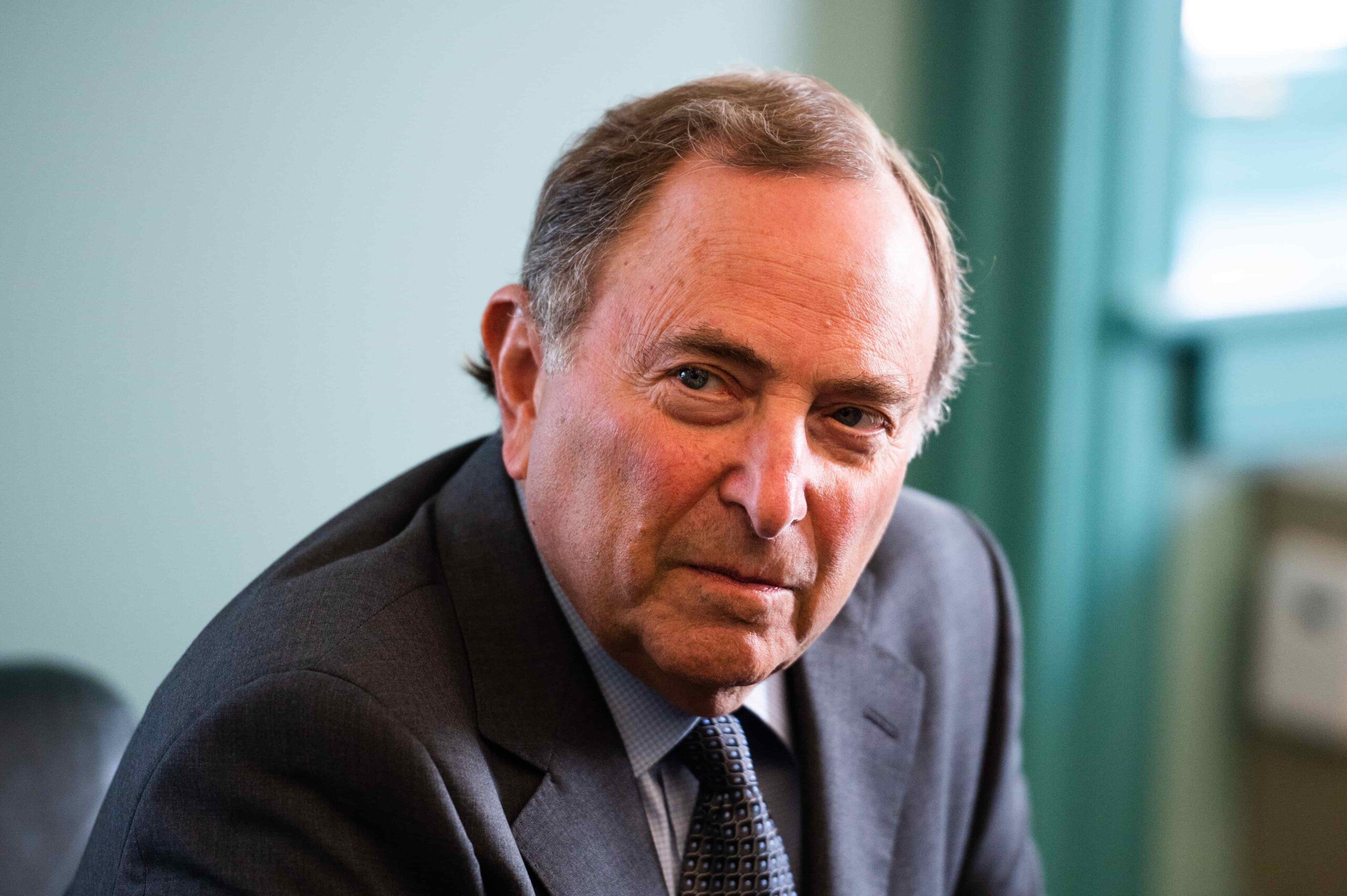
NHL commissioner Gary Bettman. Credit: Spencer Colby/The Canadian Press
The phrase “hockey is for everyone” has become a movement in recent years as the notoriously homophobic and misogynist sport has tried to become more inclusive. But in banning Pride night jerseys, the NHL decidedly declared that hockey isn’t for everyone. And the league said it loudly.
The kerfuffle over several players refusing to wear Pride jerseys for on-ice warm-ups earlier this year (notably an initiative that’s been in place across the league for years) was embarrassing enough. That the league chose to respond by eliminating the initiative altogether is cowardly.
Rather than punishing players for non-compliance, the league went nuclear and, as Xtra columnist Katelyn Burns wrote, refused to do the bare minimum. And then they followed that move with confirmation that Pride Tape—another longtime tradition of players wearing rainbow tape on their sticks to show support for LGBTQ2S+ people—would also be banned under the new rules.
And while they eventually walked back the Pride Tape ban after a swell of backlash, the move is still shameful and cowardly, particularly from a league that has still never had an openly queer player. And while openly gay minor leaguer Luke Prokop could hit the big league soon and change that, moves like banning the Pride jerseys are the sort of thing that will mean we’ll likely have to wait a lot longer.
—Mel Woods, senior editor, audience engagement
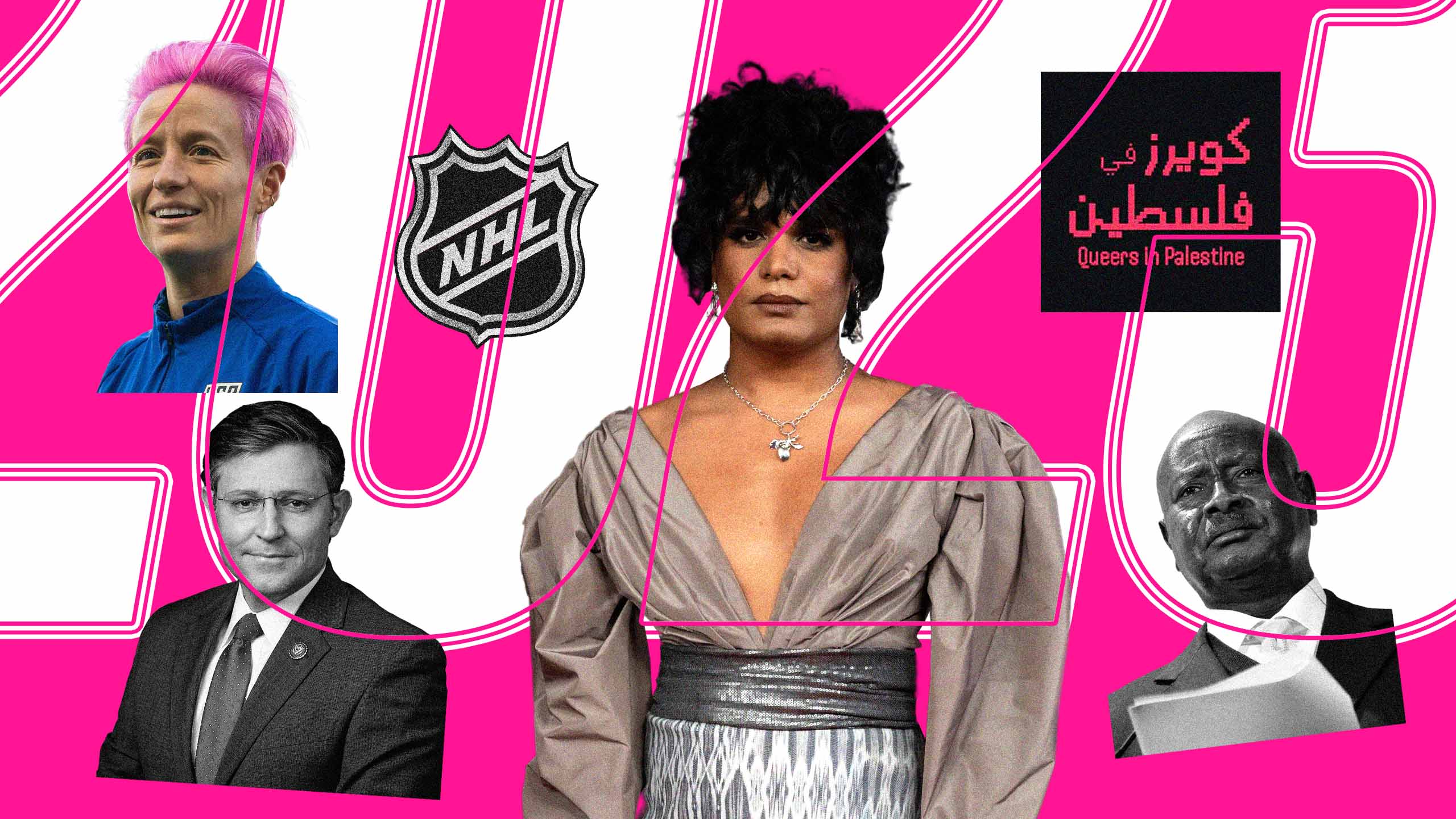
 Why you can trust Xtra
Why you can trust Xtra


